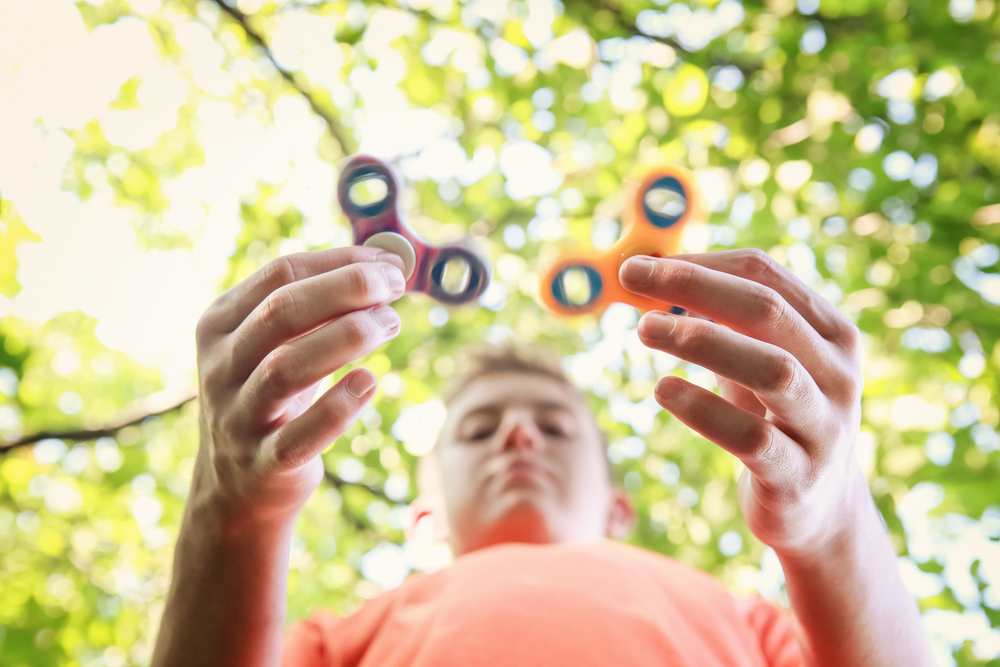 Attention Deficit Hyperactivity Disorder (ADHD) can make it hard for both teens and their parents to handle certain situations, especially when there are other troubling behaviors at play. However, there are ways to manage the diagnosis more effectively. In addition, support can be found through our Liahona Academy team, which offers a proven program that gives teens the tools they need to process feelings that may be causing the behaviors and take charge of their ADHD.
It goes without saying that when ADHD is added to the mix, adolescence can become even more complicated. In this blog, we'll talk about how to help teens with ADHD who are having trouble, with a focus on what parents can do to help and what teens can do on their own. Continue reading to learn more.
Attention Deficit Hyperactivity Disorder (ADHD) can make it hard for both teens and their parents to handle certain situations, especially when there are other troubling behaviors at play. However, there are ways to manage the diagnosis more effectively. In addition, support can be found through our Liahona Academy team, which offers a proven program that gives teens the tools they need to process feelings that may be causing the behaviors and take charge of their ADHD.
It goes without saying that when ADHD is added to the mix, adolescence can become even more complicated. In this blog, we'll talk about how to help teens with ADHD who are having trouble, with a focus on what parents can do to help and what teens can do on their own. Continue reading to learn more.
Understanding ADHD
It's important to know the basics about Attention Deficit Hyperactivity Disorder. ADHD is a neurodevelopmental disease that makes it hard for a person to pay attention, control their impulses, and keep their energy levels in check. It can cause problems at school, at home, and with other people. Troubled teens with ADHD may act on impulses, forget things, be disorganized, or have trouble controlling their emotions. It should be noted that ADHD occurs at any age, but when teens are already handed the specific challenges of this age, it becomes significantly difficult for them.How Can Parents Help?
There are many things you can do to help your teen who is diagnosed with ADHD. At the same time, resources exist that support you. For instance, the team at Liahona offers a well-rounded approach to directly dealing with behaviors, helping teens process their emotions, and supporting you along the way. The mission at Liahona is to focus on values and responsibility, providing teens with a positive peer culture that empowers them to make better choices and envision a brighter future. In addition, you can focus on the tips below to create a safe and supportive space for your teen. Learn About ADHD: The first thing you should do is learn about ADHD. This includes learning about the different types, signs, and ways to treat them. This information will help you understand your child's diagnosis and make smart choices. This includes working with the Liahona team to get the right evaluation, treatment plan, and therapy for your teen. Create a Supportive Environment: Teens with ADHD need structure and consistency. You will need to set clear standards, rules, and routines at home. In addition, praising teens for their progress is key regardless of how small the progress is. Medication Management: A popular way to treat ADHD is with medication. If this is the choice you and your teen choose, it's essential to work closely with your teen's doctor to find the right medicine and dose for them. Also, keeping an eye on the side effects and being flexible is essential. Therapy and Counseling: Liahona Academy offers dynamic therapy options to help teens learn how to deal with problems and control their emotions. Encourage Activities Outside of School: If possible, get your teen involved in things they enjoy, like sports, arts, or clubs. These activities can help them use their energy in a good way and feel better about themselves. Communicate Openly: Keeping the lines of conversation open and not judging your teen helps them work through the diagnosis and other things they're dealing with. Encourage them to talk about how they feel and what's bothering them. The key is to listen actively. Lifestyle Changes: Some choices negatively impact ADHD, while others help teens bypass its effects. Monitoring your teen to understand how to make better choices, such as what food they eat, can help them manage their diagnosis better.What Can Teens Do to Help Themselves
With support from the Liahona team and you, your teen can learn to spot their ADHD symptoms and what makes them act out. This is the first step toward being able to handle themself. Some tips for this include the following.- Invest in a planner or digital tools to help them manage their time and keep track of their tasks and deadlines.
- Break tasks into smaller, more manageable steps. This method can make teens feel less overwhelmed.
- Encourage your teen to try study methods to see what works best.
- Encourage your teen to focus on ways to deal with their stress through activities like meditation and breathing exercises.
- Empower your teen to speak up for their own needs.
- Help your teen set goals and celebrate their victories.
- Teach your teen to find the lesson when they stumble or make a mistake.
- Help your teen understand what possible triggers are for their behaviors and ADHD, such as extended technology use or ineffective anger management strategies.


Leave a Reply